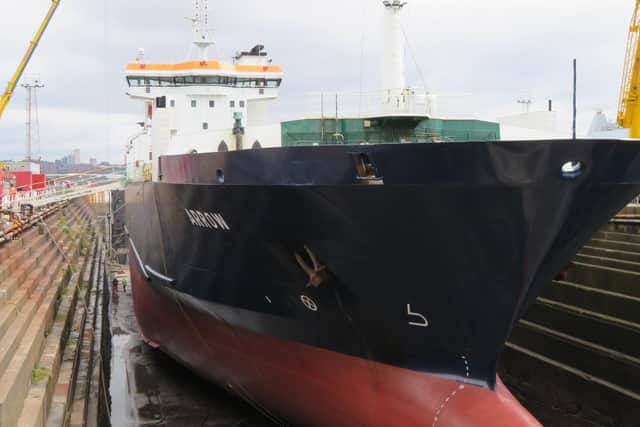Crew of grounded ship not fully prepared for restricted visibility, probe finds
The Marine Accident Investigation Branch (MAIB) said an over-correction to get back on course was not noticed by the Arrow bridge team in time to avoid the grounding on the morning of June 25, 2020.
Significant damage to the port side of the underwater hull was caused by the incident, which happened after an overnight passage from Lerwick in the Shetland Islands.
Advertisement
Hide AdAdvertisement
Hide AdDuring its port approach, a pilot exemption certificate (PEC) holder provided by the vessel’s charterer was navigating by radar and steering the vessel.
The vessel encountered the thick fog a few minutes before it entered Aberdeen’s 70-metre-wide navigation channel.
The report says the PEC holder “became overloaded… with limited support from the bridge team”.
While attempting to correct a deviation to the north of the planned track, he over-corrected to the south – and that was not noticed by the bridge team in time to avoid the grounding.
The report said: “There were no injuries or pollution, and the vessel was successfully re-floated 45 minutes later.


“There was significant damage to the port side of the underwater hull, including holing and splitting of several water ballast tanks and damage to the port propeller and rudder.
“Repairs required dry docking and the vessel was out of service for four weeks.
“As a result of the actions taken following this investigation no recommendations have been taken.”
A message from the Editor:
Thank you for reading this article. We're more reliant on your support than ever as the shift in consumer habits brought about by coronavirus impacts our advertisers.
If you haven't already, please consider supporting our trusted, fact-checked journalism by taking out a digital subscription.
Comments
Want to join the conversation? Please or to comment on this article.